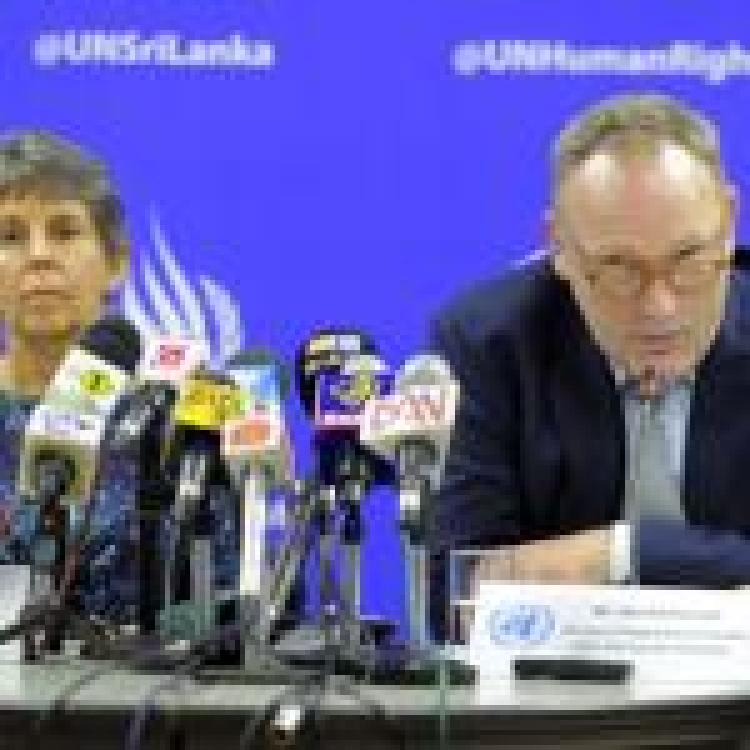Britain, Germany, Macedonia and Montenegro said that Sri Lanka’s lack of progress in important areas of reform “risks undermining reconciliation efforts” in a statement delivered to the 39th session of the UN Human Rights Council (UNHRC) today.
The joint statement by the states, which make up the Sri Lanka core group, said that in co-sponsoring a resolution that called for an accountability mechanism with international judges, “Sri Lanka recognised that national accountability mechanisms are essential to dealing with the past, and to restoring confidence among its communities”.
However, the core group went on to state “these have yet to be established”.
“The Prevention of Terrorism Act has not been replaced with a law that accords with international standards. And, though processes to consider reform to important provisions of the Constitution, including devolution of political authority, has been ongoing since 2016, a way forward has not been found. We are concerned by recent reports of harassment of and attacks on human rights defenders.”
Though the statement said Sri Lanka has taken steps to implement commitments made to the council, with the core group stating they “applaud the Office on Missing Persons’ commencement of work and encourage everyone able to advance or contribute to its work to do so”, it noted that “the pace of progress on important areas remains much slower than many hoped for”.
“Our view remains that, with determined leadership and a clear time-bound action plan, this Government can make more progress towards delivering its Council commitments, and that doing so will better position Sri Lanka and its people to enjoy a more enduring reconciliation and prosperity.”
“We urge Sri Lanka to prioritise and drive forward implementation of resolutions 30/1 and 34/1, before the Council next considers Sri Lanka in March.”
Read the full text of the statement here.
The statement from the core group comes despite senior Sri Lankan leaders, including the president Maithripala Sirisena, repeatedly having spoken out against an accountability mechanism with international judges. He has also vowed to protect the military from facing charges of war crimes, which the UN have found credible allegations of in previous reports.

